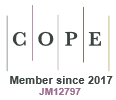Articles citing this paper
Cost-effective fuel treatment planning: a theoretical justification and case study
Jason Kreitler A E , Matthew P. Thompson B , Nicole M. Vaillant C and Todd J. Hawbaker D
A E , Matthew P. Thompson B , Nicole M. Vaillant C and Todd J. Hawbaker D
+ Author Affiliations
- Author Affiliations
A US Geological Survey, Western Geographic Science Center, Boise, ID 83706, USA.
B US Department of Agriculture Forest Service, Rocky Mountain Research Station, Fort Collins, CO 80526, USA.
C US Department of Agriculture Forest Service, Rocky Mountain Research Station, Wildland Fire Management, Research, Development & Application, Bend, OR 97701, USA.
D US Geological Survey, Geosciences and Environmental Change Science Center, Denver, CO 80225, USA.
E Corresponding author. Email: jkreitler@usgs.gov
International Journal of Wildland Fire 29(1) 42-56 https://doi.org/10.1071/WF18187
Submitted: 25 October 2018 Accepted: 20 October 2019 Published: 26 November 2019
11 articles found in Crossref database.
Comparing risk-based fuel treatment prioritization with alternative strategies for enhancing protection and resource management objectives
Thompson Matthew P.,
Vogler Kevin C.,
Scott Joe H., Miller Carol
Fire Ecology. 2022 18(1).
Fuel treatment effectiveness at the landscape scale: a systematic review of simulation studies comparing treatment scenarios in North America
Ott Jeffrey E.,
Kilkenny Francis F., Jain Theresa B.
Fire Ecology. 2023 19(1).
The Economic Value of Fuel Treatments: A Review of the Recent Literature for Fuel Treatment Planning
Hunter Molly E., Taylor Michael H.
Forests. 2022 13(12). p.2042
Advancing contiguous environmental land allocation analysis, planning and modeling
Murray Alan T.,
Church Richard L.,
Pludow B. Amelia, Stine Peter
Journal of Land Use Science. 2022 17(1). p.572
Wildfire probability models calibrated using past human and lightning ignition patterns can inform mitigation of post-fire hydrologic hazards
Villarreal Miguel L.,
Norman Laura M.,
Yao Erika H., Conrad Caroline R.
Geomatics, Natural Hazards and Risk. 2022 13(1). p.568
Designing forest restoration projects to optimize the application of broadcast burning
Belavenutti Pedro,
Ager Alan A.,
Day Michelle A., Chung Woodam
Ecological Economics. 2022 201 p.107558
Evaluation of forest treatment planning considering multiple objectives
Pludow B. Amelia,
Murray Alan T.,
Echeverri Vanessa, Church Richard L.
Journal of Environmental Management. 2023 346 p.118997
Causal Bayesian networks in assessments of wildfire risks: Opportunities for ecological risk assessment and management
Carriger John F.,
Thompson Matthew, Barron Mace G.
Integrated Environmental Assessment and Management. 2021 17(6). p.1168
Assessing large landscape patterns of potential fire connectivity using circuit methods
Buchholtz Erin K.,
Kreitler Jason,
Shinneman Douglas J.,
Crist Michele, Heinrichs Julie
Landscape Ecology. 2023 38(7). p.1663
Societal benefits from wildfire mitigation activities through payments for watershed services: Insights from Colorado
Jones Kelly W.,
Gannon Benjamin,
Timberlake Thomas,
Chamberlain James L., Wolk Brett
Forest Policy and Economics. 2022 135 p.102661
Wildfire Risk Assessment for Strategic Forest Management in the Southern United States: A Bayesian Network Modeling Approach
Nepal Sandhya,
Pomara Lars Y.,
Gould Nicholas P., Lee Danny C.
Land. 2023 12(12). p.2172


